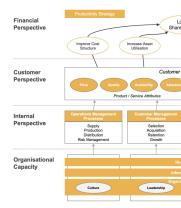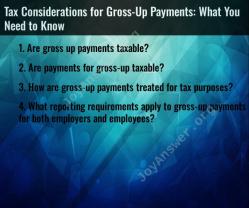Is there a deduction for wage garnishment?
Yes, wage garnishment involves deductions from an individual's wages or salary. Wage garnishment is a legal process through which a portion of an individual's earnings is withheld by their employer and paid directly to a creditor or government agency to satisfy a debt, court judgment, or other financial obligation. Here's how it works:
Creditor or Agency Obtains a Judgment: Typically, wage garnishment begins when a creditor or government agency successfully obtains a judgment against an individual in a court of law. This judgment may be related to unpaid debts, child support, alimony, taxes, or other financial obligations.
Court Orders Wage Garnishment: Once the judgment is obtained, the court can issue an order for wage garnishment. This order is sent to the individual's employer, instructing them to withhold a specified amount from the individual's paycheck and send it to the creditor or agency.
Employer Implements Wage Garnishment: Upon receiving the court order, the employer is legally obligated to comply with the wage garnishment. They will calculate the amount to withhold based on the court's instructions and the individual's earnings.
Deductions from Paycheck: The specified amount is deducted directly from the individual's paycheck before they receive their net pay. This deducted amount is then sent to the creditor or agency to satisfy the debt or financial obligation.
It's important to note that there are federal and state laws that govern wage garnishment, and there are limits on the amount that can be garnished from an individual's wages. The specific rules and limits can vary depending on the type of debt and the jurisdiction.
Wage garnishment can have a significant impact on an individual's finances, as it reduces their take-home pay. It's advisable to consult with a legal professional if you are facing wage garnishment to understand your rights and explore any potential options for resolving the underlying debt or financial issue.
1. Understanding the Deductions Associated with Wage Garnishment
Wage garnishment is a legal process that allows a creditor to collect a debt by withholding money directly from a debtor's paycheck. Wage garnishment can be used to collect a variety of debts, including child support, student loans, and medical bills.
The amount of money that can be garnished from a paycheck is limited by law. The Consumer Credit Protection Act (CCPA) limits the amount of a paycheck that can be garnished to 25% of the employee's disposable earnings or the amount by which the employee's disposable earnings exceed 30 times the federal minimum wage, whichever is less.
Disposable earnings are the amount of money left after taxes and other required deductions have been taken out.
2. Legal Aspects of Wage Garnishment and Potential Deductions
There are a number of legal requirements that must be met before a creditor can garnish an employee's wages. The creditor must have a valid court order or other legal authorization to garnish the wages. The creditor must also provide the employee with notice of the garnishment.
The employee has the right to object to the garnishment if they believe that it is not legal or if they cannot afford to pay the amount that is being garnished. The employee can also file for bankruptcy to stop wage garnishment.
3. Tips for Managing Finances When Dealing with Wage Garnishment
If you are facing wage garnishment, there are a number of things you can do to manage your finances:
- Create a budget. This will help you to track your income and expenses so that you can see where your money is going.
- Prioritize your bills. Make sure that you are paying your most important bills, such as rent and utilities, first.
- Negotiate with your creditors. Some creditors may be willing to negotiate a payment plan that you can afford.
- Seek help from a financial advisor. A financial advisor can help you to develop a plan to manage your finances and get out of debt.
If you are struggling to manage your finances due to wage garnishment, there are a number of resources available to help you. You can contact your local credit counseling agency or bankruptcy attorney for assistance.
Here are some additional tips:
- Talk to your employer. Your employer may be able to work with you to adjust your paycheck so that you can afford to pay the garnishment and still meet your other financial obligations.
- Look for ways to reduce your expenses. There are many ways to cut back on spending, such as eating out less, canceling unnecessary subscriptions, and shopping around for cheaper insurance rates.
- Increase your income. If possible, try to find ways to increase your income, such as getting a part-time job or starting a side hustle.
Wage garnishment can be a difficult situation to deal with, but it is important to remember that you are not alone. There are a number of resources available to help you manage your finances and get through this difficult time.












